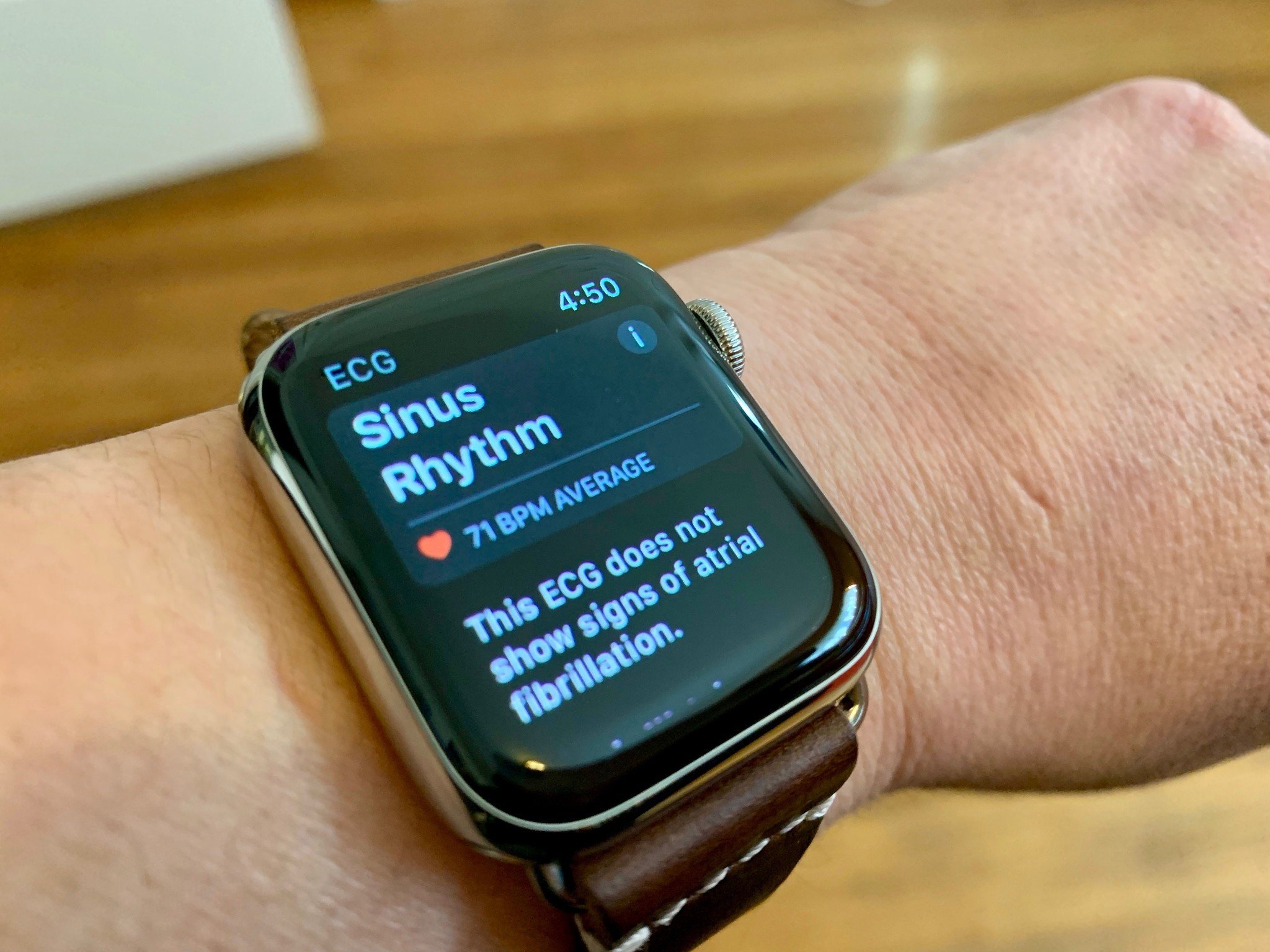Apple Watch may miss AFib in as many as 59% of cases despite the fancy sensors

What you need to know
- Apple Watch has already saved lives by detecting AFib.
- But Apple doesn't claim it to be perfect.
- A new report highlights how accurate it is at detecting an issue.
Apple Watch has a fleet of sensors to allow it to keep tabs on what our hearts are doing, with the ability to detect atrial fibrillation (AFib) being one of its big benefits. It's saved lives just by doing that, but it isn't perfect. Apple says as much itself, but a new report shows just how often Apple Watch may not detect AFib in wearers.
The reason for Apple Watch's limitations come down to its inability to detect AFib when the wearer's heart rate is higher than 120 beats per minute. So the question is whether that's an issue or not. And in as many as 59% of cases, it might just be.
A new Fortune Report mentions numerous studies that have looked into AFib patients and their heart rates. And while many instances will involve a heart rate below 120 beats per minute, many are likely to be considerably higher.
AFib typically has a heart rate of 100 to 175 beats per minute (bpm), according to the Mayo Clinic. In 2015, a study published in the Annals of Medicine found that in a cohort of 2,821 patients with new-onset AFib, the mean heart rate was 109 bpm. But, according to the study, roughly one-third of patients had a heart rate of over 120. Further, some of these patients were receiving beta-blockers, a drug therapy commonly used to control the rapid rate and symptoms of AFib. Because beta blockers cause a direct decrease in heart rate, this patient population may have a slower heart rate than would be typical for an untreated patient group, resulting in an underestimation of true AFib heart rates for a larger population.
Things get worse when you take into account another study which suggests an Apple Watch detection accuracy of just 41%. As a result, 59% of cases would go undetected.
In another recent clinical study published in Circulation, researchers examined the ability of the Apple Watch to detect AFib in a group of patients post-cardiac surgery, a common complication after this procedure. The study found that the Apple Watch detected the abnormality in only 34 of 90 instances—an accuracy of only 41%.
It's important to ensure perspective is maintained here, though. At no point has Apple suggested that Apple Watch has a 100% success rate when detecting anything, let alone AFib. And a 41% success rate is a better proposition than the 0% achieved by not wearing Apple Watch at all.
The upshot of all this? An Apple Watch wearer isn't guaranteed to be notified if something is a miss. Someone who doesn't wear one is guaranteed not to be notified.
And above all, consult your doctor if you're at all concerned about your health. They'll always be better placed to advise than any Apple Watch could be.
iMore offers spot-on advice and guidance from our team of experts, with decades of Apple device experience to lean on. Learn more with iMore!

Oliver Haslam has written about Apple and the wider technology business for more than a decade with bylines on How-To Geek, PC Mag, iDownloadBlog, and many more. He has also been published in print for Macworld, including cover stories. At iMore, Oliver is involved in daily news coverage and, not being short of opinions, has been known to 'explain' those thoughts in more detail, too.
Having grown up using PCs and spending far too much money on graphics card and flashy RAM, Oliver switched to the Mac with a G5 iMac and hasn't looked back. Since then he's seen the growth of the smartphone world, backed by iPhone, and new product categories come and go. Current expertise includes iOS, macOS, streaming services, and pretty much anything that has a battery or plugs into a wall. Oliver also covers mobile gaming for iMore, with Apple Arcade a particular focus. He's been gaming since the Atari 2600 days and still struggles to comprehend the fact he can play console quality titles on his pocket computer.
